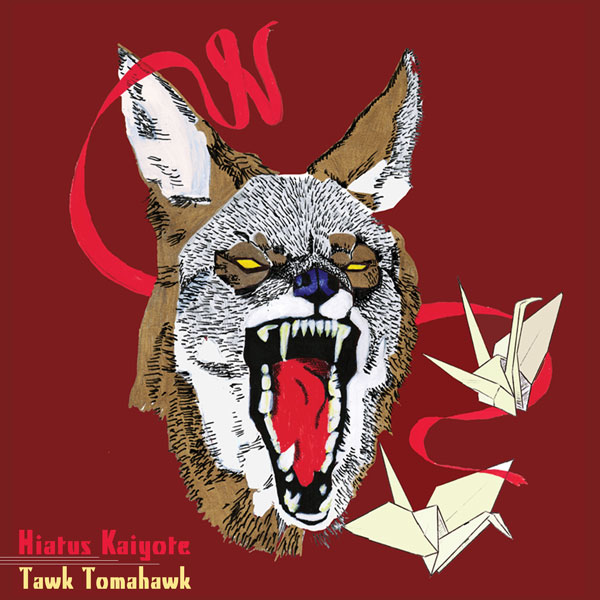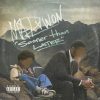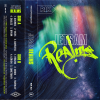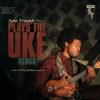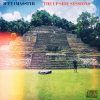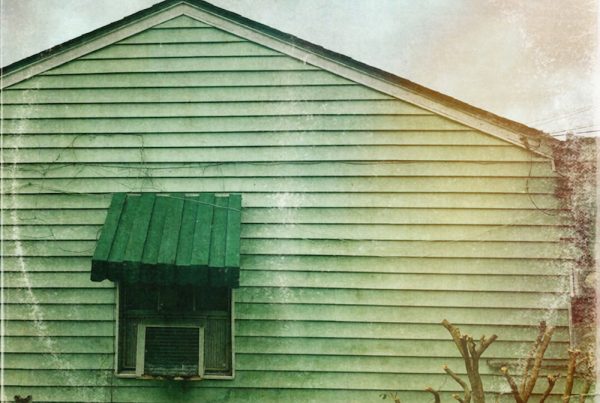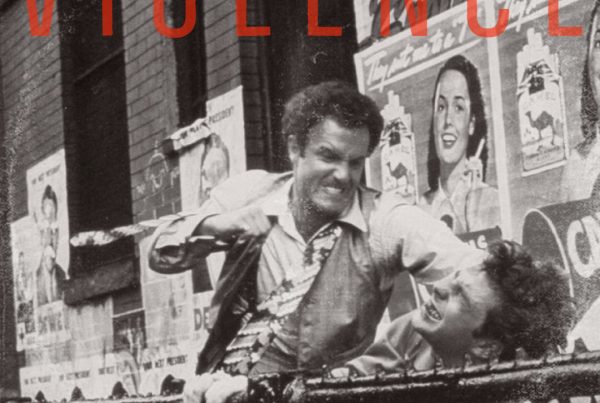Here’s Part II of Funkadelic Freestyles Radio’s interview with Hiatus Kaiyote, the stellar future soul quartet from Melbourne and a longtime favourite here at Rappers I Know. Jamie Benson asks the band about their first official studio project, how D’Angelo and ?uestlove have influenced their music, and what’s next for their careers. Missed Part I? Peep it here.
JAMIE BENSON: Let’s talk Tawk Tomahawk, your debut EP. First of all – while I realize some of the songs are rather short – it still feels like a full-length album. Why do you guys call it an EP?
PAUL BENDER: Because that’s what we thought we were going to make, when we started making it.
PERRIN MOSS: We did make it. It’s still an EP.
NAI PALM: There’s four actual full-length songs. The idea was to have it as a cohesive piece, but there’s interludes more from like the tip of a hip-hop mixtape sort of vibe. With Donuts by J Dilla, some songs are only a minute long – it’s the idea of a song. Holistically, there’s four feature songs, so that’s what makes it an EP. These are the songs we’re gonna record, but as a result of that process, the interlude idea came about and we extended upon that. We wanted it to be a cohesive piece from start-to-finish, like a whole sonic journey.
PERRIN: Four songs for us – especially with the amount of music we all make individually – you may as well tack some extra things on there. Albums back in the day were like 70 minutes long and now albums are like 40 minutes.
JAMIE: But that’s just the norm now, I guess.
PERRIN: It is the norm. But for us, we’re still thinking of an EP as like half an hour. That’s what I think an EP is.
JAMIE: Nai Palm – what kind of musical background do you have? What I’m trying to ask is…where did you get that beautifully unique voice of yours?
NAI: My mom was a contemporary choreographer, and I grew up with five siblings and we all sang together and stuff. It was a very creative household. I was raised on soul, traditionally – just from growing up around the house, that was the soundtrack to my childhood. That’s where I get my pipes from, but [my mom] also brought flamenco and music from Mali [into the house]. My aunt was studying classic Indian dance for twenty years, so from a young age being exposed to a lot a different music styles but having soul as a staple, I feel like I was never trained formally. That was my training, just from growing up listening to a wide range of different music. And language…a lot of my friends are from everywhere – like Columbia and Iraq, Somalia and Cuba. I like juxtaposition; that you can be breathy and smooth but abrasive, as well. It’s something that translates to somebody as an instrumentalist; trying to find that balance – that push and pull – the right amount of tension versus the right amount of sedation.
JAMIE: “Malika” is a clearcut standout on the EP. Can you tell me a little bit about how that track came together, and the subtle opera influence in the background?
NAI: It’s pretty crazy, because that was like the first song that we really…I almost feel like “Malika” was the real, original growth of the band, because it was a song that I wrote after coming back from two months in the desert and it was really intense; I was houseless. It was just this epic time. I came back to Melbourne and it was spring. For me, spring isn’t a date; it’s when I smell jasmine, and “Malika” is sanskrit for jasmine. My sister was about to give birth, and I went along to my friend’s singing lesson because he just wanted moral support. In the studio of this singing teacher’s place, she had the opera that is the flower duet – the Lakmé Flower Duet – and I just saw the word ‘malika’ and I was just trying to make small talk: “you know malika is the sanskrit for jasmine and jasmine is my favorite flower.” She said, “yeah, this is an opera piece,” and she sang it to me. I remembered it from doing ballet when I was really little; it’s a familiar melody. And then I was walking home and got a call from my sister saying she had given birth – there was just this release from an intense sort of time, I guess. I went home and wrote my interpretation of that melody. I called Bender up – there was this collective called the Soul Collective – and I was playing solo as a part of this showcase [they were playing at]. There was a friend of ours who was an opera singer who was also singing at it, and she called me up upset because she didn’t feel like she fit in the soul genre. Like, “I’m an opera singer, why are they booking me, I don’t fit.” And I said, “well I don’t really fit either. But I’ve just written Det som virkelig skiller den ut fra andre er den unike spin funksjonen hvor alle 15 symboler snurrer individuelt. this song with an opera part. Maybe we could sing the opera parts and we could do it together.” I hit up Bender on his phone and sang the entire song on his voice mail. I said, “do you think you could do some type of production to it?” He’s a wizard, so two days later there was some form of what we have now [with “Malika”]. So we did our gig with me, the opera singer, and Bender on production. For me, that was the first official step of trying to work with other musicians on the project, and then it developed from there with the rest of the guys. The guys were pretty deep with it; there’s a lot of layers. It’s like seven gigabytes of samples and shit. [“Malika”] happened very organically, and it just seemed to work. Our friend who recorded the opera part of it – she was in a throwback soul band that she’d just quit because she was like, “no, I’m gonna be a soprano opera singer.” It just happened that this project came about – it was a celebration of her making that decision, as well.
JAMIE: I think it’s so great that you played the song for him on the voice mail, because a lot of great artists have done that in the past. ?uestlove [of the Roots] used to listen to Dilla’s beats on the phone; in his memoir [Mo’ Meta Blues], he writes about how he used to rack up ridiculous phone bills at hotels.
PERRIN: That’s fucking awesome.
NAI: We made it into his memoir. We get a shoutout. He’s talking about he’s not sure whether…it’s his fine line of feeling like he’s all that and super influential, and then [the other side] of he’s not shit because he’s in the back of all this stuff. He used us an example because he tweeted about us once, and the response that that had was…
JAMIE: Instant.
NAI: Yeah, and the fact that he doesn’t shout out a lot of music [in general]. He did a Red Bull Music Academy talk and mentioned us, like several times. It’s about the importance of his role in the industry and how he can affect the lives and careers of other artists.
JAMIE: This is a perfect segue into the hip-hop aspect of our conversation. You recruited the emcee/producer Q-Tip for a remix of the standout record, “Nakamarra.” I want to talk about your label boss Salaam Remi later – who I understand helped facilitate this collaboration – but Nai Palm; you wrote a letter to Tip, right?
NAI: Email. It’s such a sacred song to us. “Nakamarra” is an indigenous skin name that was given to a friend who was out working in aborigine communities in the desert. The theme of it is so specifically Australian but also sacred and very personal to us. When the idea of an emcee featuring on it came up, we were all very…nervous about it, to be honest. We all thought there was probably one or two people who could actually pull it off. Q-Tip had to be one of them; Mos Def was the other. When Salaam came with Q-Tip, we were like, “really?!” We’re all pretty big Tribe fans. As alluring as that is, we didn’t just want him from a lyrical perspective to come as a party-hype emcee. I emailed him with the whole back history of [“Nakamarra”]…
JAMIE: And he was sold?
NAI: Well, his interest peaked after reading it. If you listen to [his verse], it’s quite political. The fact that he actually put intention into what he was writing – it was refreshing.
JAMIE: When I think of Q-Tip, I think of Erykah, The Roots, D’Angelo, Common, and in turn I think of neo soul. What have you drawn from that movement in crafting your own “future soul?”
PERRIN: For me, I’m a big fan of all Soulquarian records and the Voodoo outtakes. In fact, mainly the Voodoo outtakes. I like the rawness in the quality of recording in that, and the simplicity in the playing. It’s all about the groove…
NAI: And the pocket.
PERRIN: Yeah, the pocket. It’s just so lush. ?uestlove is such an inspiration. Any time I’m speeding up, I just think about ?uestlove and I think about that album and I’m just like, “okay, ease back. It’s good.”
JAMIE: Nai Palm – I read in a recent interview that you’re “revisiting D’Angelo for the billionth time.” I find myself listening to Voodoo at least once a week.
NAI: You know how you overkill an album and you’re like, “I can’t listen to this shit anymore; I’ve gotta listen to some other shit?” I have to put it back on the shelf for awhile so I can listen to it with fresh ears and hear different details in it. But [Voodoo] is always going to be a staple.
JAMIE: Your record label, Flying Buddha, is run by a producer who most hip-hop fans know from his work with Nas and most R&B fans know from his work from Amy Winehouse. Given his varied background, I imagine Salaam Remi is constantly trying to push your creative limits.
BENDER: Not really…
NAI: More just allow the space for our creativity.
BENDER: He’s the most chill dude ever. I guess there’s a lot of heart around us and a lot of people trying to push a lot of things. Salaam’s the one to chill everyone out. Like, “hey, you guys just gotta make the best music you can make. It’s going to take a little bit of time; don’t be afraid to experiment, don’t be afraid to try doing things different ways. You gotta be happy with it and you gotta love it.” That’s his whole thing.
PERRIN: I think no matter who it is, if they’re ever gonna sign us to change our sound, we wouldn’t have done [that deal] in the first place. We’re so new to it, and we’re just experimenting. We have so much more to go. We have confidence in ourselves that we can make good albums. I think Salaam’s just hoping we do good things, and we hope we do, as well.
BENDER: It seems like his approach with Flying Buddha is a very hands-off approach, which is the opposite of most deals that are done with a major [label]. He wants to get artists who can make their music the way it should be made. He doesn’t have to get involved – he doesn’t have to put his producer hat on. He’s just there to support it and find avenues to get it out to people.
PERRIN: The good thing is – if we were stuck for ideas, he’d be super willing to help us out.
JAMIE: He gets the concept of artistic integrity.
NAI: Totally! He’s coming from a production background…
PERRIN: He’s a genius, and such a lovely dude.
NAI: The reason we have our recognition is because of the honest expression of what we’re doing musically. [Salaam] gets that. It’s really sad that that’s not the norm. Like, “your sound is so great. We love it so much that we’re going to squish it into this tiny little box over here.” And then it’s something else, and then the fans are like, “what is this wack shit that they’re releasing?” Obviously that’s what can happen when you sign to a major label. As soon as we signed to an imprint of Sony, on all our social networking, a lot of people were like, “please don’t fuck with what you’ve got already.” Or, “don’t sign your soul away…”
JAMIE: It’s a knee-jerk reaction [on the part of the fan].
PERRIN: Right; a lot of people do that. They go to a major label and they change. I don’t think we’re ever going to do that.
NAI: It’s not what it’s about for us. It’s purely about the music for us. Whether we are successful in doing that or not – it’s not the driving force behind it for us. It just so happens that we’ve been given this really rare opportunity to flourish on an industry-level, as well as keeping ourselves creatively healthy. We feel blessed.
PERRIN: If we can be successful with what we’re doing and other people can see that, then maybe it’s a good thing for music in general.
JAMIE: If you weren’t doing this music thing, where do you suppose each of you would be today?
NAI: I’d be in wildlife care and focus on something and making stuff with my hands. On the flip side of that, I don’t know if I’d even be here if I couldn’t make music because it’s such an important part of my emotional stability and sanity.
PERRIN: I think I’d be trying to play a sport. I like sport a lot.
SIMON MAVIN: I’d totally just wander the world aimlessly. Just not know what’s going on.
BENDER: I might be doing some sort of visual art, maybe slowly slipping into madness.
NAI: What was it? Novelist junkie?
BENDER: Yeah, I’m gonna be a novelist junkie.
JAMIE: Finally – Nai Palm, Perrin, Simon, & Paul – what’s next for Hiatus Kaiyote?
PERRIN: More records.
NAI: We’re recording another album. More touring – hopefully extending on the visual element of our shows. Hopefully collaborating with a vast variety of instrumentalists and expanding our recording techniques.
SIMON: Just pushing the boundaries. Never settling for the norm that we think is the norm, and just trying to push ourselves more and more.
BENDER: As soon as it gets easy.
SIMON: Just be fresh – try and not do the same tour and things, twice.
NAI: Just general evolution – maybe I’ll grow some gills [band laughs].
JAMIE: Hiatus Kaiyote – thanks for sitting down to chat.
Support Hiatus Kaiyote by or catching them on tour.

